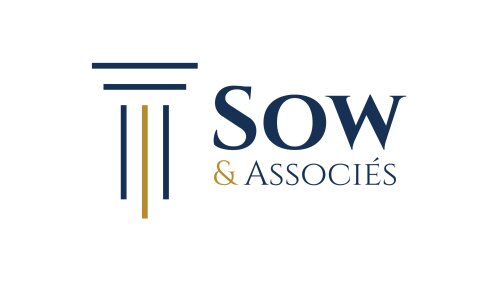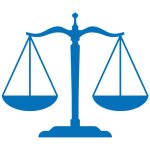Best Education Law Lawyers in Dakar
Share your needs with us, get contacted by law firms.
Free. Takes 2 min.
List of the best lawyers in Dakar, Senegal
About Education Law in Dakar, Senegal
Education Law in Dakar, Senegal, encompasses the set of legal principles, statutes, regulations, and procedures governing the rights and responsibilities of students, parents, teachers, educational institutions, and government education authorities. The framework is primarily inspired by national laws, as well as international conventions ratified by Senegal, including the right of every child to education. Education Law addresses issues related to access to education, the quality of education, administrative regulations for schools, teachers' rights and obligations, as well as protection from discrimination or abuse within educational settings. In Dakar, as the country's capital, both public and private educational institutions must comply with these legal provisions.
Why You May Need a Lawyer
Legal assistance in the area of Education Law can be crucial for students, parents, teachers, and school administrators. Common situations requiring legal support include:
- Challenging unfair disciplinary actions or expulsions from a school
- Protecting the rights of children with disabilities or special educational needs
- Dealing with cases of discrimination, bullying, or harassment in educational institutions
- Clarifying legal obligations regarding education for foreign or expatriate families
- Resolving disputes between parents and schools regarding curricula, fees, or administrative decisions
- Advising teachers or staff on employment law issues within the educational sector
- Addressing non-compliance with national or international education standards
A lawyer specialized in Education Law can help interpret regulations, represent clients before educational authorities or administrative courts, and ensure all parties' rights are respected according to the law.
Local Laws Overview
Senegal’s educational system and laws are governed by the Code de l’Education (Education Code), decrees, ministerial circulars, and the national constitution. Key aspects relevant to Education Law in Dakar include:
- Compulsory Education: Senegalese law mandates compulsory schooling for children between ages 6 and 16.
- Non-Discrimination: Laws protect against discrimination in access to education based on gender, religion, disability, or ethnic origin.
- Public and Private Schools: Both types are regulated under the law, with private schools requiring accreditation and oversight.
- Curriculum Standards: The Ministry of Education establishes national curricula and educational standards, which all schools must follow.
- Legal Protections for Children: Children’s rights, including safety, privacy, and well-being at school, are safeguarded under national child protection laws.
- Teacher Regulations: Employment, qualifications, and conduct of teachers are regulated, and disputes can be subject to labor law or administrative review.
Frequently Asked Questions
What legal rights do children have regarding access to education in Dakar?
Every child in Dakar has the right to free and compulsory primary education. The law prohibits any discrimination regarding access to educational facilities.
Can a school expel a student without parental consent?
A school must follow due process and communicate with the parent or guardian before any expulsion. Legal procedures require that the child and family are heard before a final decision is made.
What can I do if my child is discriminated against in school?
You may file a complaint with the school administration, the Ministry of Education, or consult a specialized lawyer to seek protection or remediation under anti-discrimination laws.
Are private schools regulated differently than public schools?
Yes, while both are subject to basic national education laws, private schools must also obtain accreditation and comply with additional regulations regarding curriculum and teacher qualifications.
What rights do teachers have regarding employment and dismissal?
Teachers are protected by national labor laws and specific provisions in the Education Code. They are entitled to fair working conditions, due process in case of dismissal, and the right to appeal decisions.
Is homeschooling allowed in Dakar, Senegal?
Homeschooling is not widely recognized under Senegalese law. Primary and secondary education is expected to take place within accredited institutions.
How are special educational needs addressed in the legal framework?
Children with disabilities or special needs are entitled to inclusive education. Public schools are required to make reasonable adjustments, and separate facilities may exist for special education.
What are my options if I disagree with a school's decision regarding my child?
You can first appeal directly to the school administration, then to local education authorities, and ultimately seek legal redress in courts if needed.
How does the law address bullying and harassment in schools?
Bullying and harassment are prohibited by law. Schools have an obligation to prevent and address such behavior, and families may seek legal intervention if necessary.
Can foreign or expatriate children attend public schools in Dakar?
Yes, non-citizen children generally have the right to enroll in public schools in Dakar, though specific administrative requirements may apply, such as residence permits or documentation.
Additional Resources
For anyone seeking legal advice or assistance regarding Education Law in Dakar, the following resources and bodies may prove helpful:
- Ministère de l'Education Nationale du Sénégal: The national authority overseeing education policy, school accreditation, and educational rights.
- Direction de la Protection de l’Enfant: A government body focused on child welfare and protection, including in educational contexts.
- Barreau du Sénégal: The Senegalese Bar Association can help you find lawyers specializing in Education Law.
- UNICEF Senegal: Offers advocacy and support programs for children's rights, including educational access and protection.
- Local NGOs: There are several non-governmental organizations in Dakar that support children's educational rights, such as Article 19 West Africa or the Rencontre Africaine pour la Défense des Droits de l’Homme (RADDHO).
Next Steps
If you or someone you know requires legal assistance with an Education Law issue in Dakar, consider the following steps:
- Identify the nature of your issue, and gather all relevant documents, such as school correspondence, disciplinary notices, or administrative decisions.
- Contact your school administration for an initial attempt at resolution through negotiation or mediation.
- Reach out to the Ministry of Education or local education authorities to escalate unresolved issues.
- If necessary, consult a lawyer who specializes in Education Law in Senegal. The Senegalese Bar Association can provide a list of qualified professionals.
- For cases involving children's rights, consider contacting advocacy organizations or child protection services for guidance and support.
Education is a fundamental right. Understanding your legal options and seeking expert advice when problems arise can help ensure that all students receive fair treatment and opportunities in Dakar, Senegal.
Lawzana helps you find the best lawyers and law firms in Dakar through a curated and pre-screened list of qualified legal professionals. Our platform offers rankings and detailed profiles of attorneys and law firms, allowing you to compare based on practice areas, including Education Law, experience, and client feedback.
Each profile includes a description of the firm's areas of practice, client reviews, team members and partners, year of establishment, spoken languages, office locations, contact information, social media presence, and any published articles or resources. Most firms on our platform speak English and are experienced in both local and international legal matters.
Get a quote from top-rated law firms in Dakar, Senegal — quickly, securely, and without unnecessary hassle.
Disclaimer:
The information provided on this page is for general informational purposes only and does not constitute legal advice. While we strive to ensure the accuracy and relevance of the content, legal information may change over time, and interpretations of the law can vary. You should always consult with a qualified legal professional for advice specific to your situation.
We disclaim all liability for actions taken or not taken based on the content of this page. If you believe any information is incorrect or outdated, please contact us, and we will review and update it where appropriate.










